
One of the best ways to dispose of organic waste (and a few other materials) is to compost them. Here we’ll look at 10 simple everyday items that you can compost at home. This prevents you from sending them to landfills and gives your scraps the optimum conditions for breakdown. There are hundreds of composting bins out there to help you, this is our overall favourite one. In the end, you’re left with extremely effective fertilizer you can use around your garden!
With learning to compost at home comes the journey of figuring out what waste can be composted and what needs to be thrown away. For those who are just getting started, or are thinking of giving composting a try, we’ve put together a list of 10 things you can compost at home – and it includes more than just organic waste. Before we get into the list, let’s also have a quick look at why composting is such a great thing to do – and how you can do it from anywhere.
Food waste is becoming an increasing environmental issue in our society. Aside from the paradox of throwing large amounts of a resource many people in the world are desperately lacking, there’s one big problem food waste is causing – it’s contributing to climate change.
When uneaten food ends up in a landfill, it lacks access to oxygen and cannot decompose properly. Instead, it produces methane – a greenhouse gas 84 times more potent in the short run than CO2!
As the USDA estimates, 30% to 40% of the food supply in the US is wasted and sent to landfills – that is a lot of methane being released. By composting at home, you can reduce your contribution to this and lower your personal carbon footprint.
Even if you don’t have a garden or live in an apartment, you can still compost and enjoy the associated benefits. Worm bins (vermicomposters), bokashi bins, or making use of a local community garden are just some of the options!
It is best if you have some outdoor area, e.g. a balcony or terrace – but not having one should not be something to stop you from composting.
Fruit and veg scraps such as potato peels or avocado skins can all be easily composted. The majority of plant-based foods from your kitchen can be composted and they’re likely going to make up the bulk of your compost. Animal-based foods such as meat or dairy can’t be composted, so keep that in mind.
Some food scraps, such as avocado seeds, take a longer time to decompose and it’s best to chop them or break them up before adding them to the compost, to speed the process up.
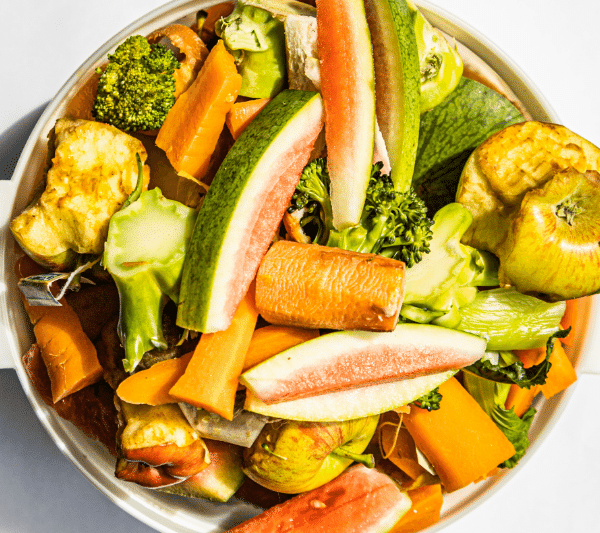
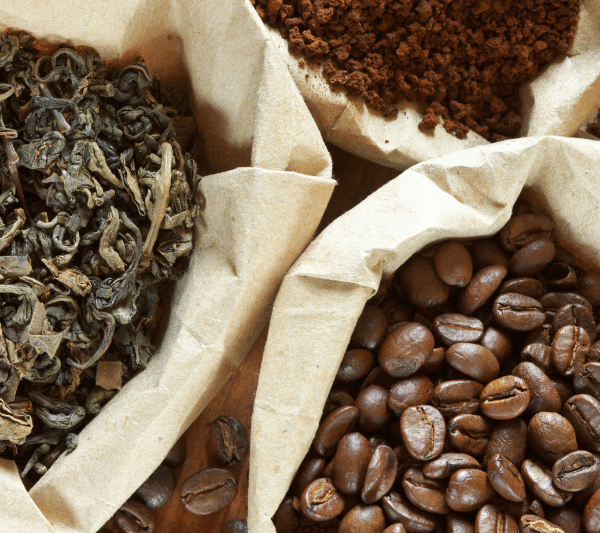
Just as your food scraps, both coffee grounds and tea leaves can be chucked in the compost bin without worry. Coffee grounds are great in particular, as they add nitrogen to the pile – and coffee filters can be thrown into the compost too!
As for tea bags, some can be composted. However, more and more brands include polypropylene in their teabags, which makes them non-biodegradable. Check your teabags before composting.
If you have a garden, you can compost any leaves you collect in fall. This may be harder to do if you’re using a vermicomposter or bokashi bins, due to their size – but if you have a garden, then you likely also have a garden compost.
However, do keep in mind that dry leaves contain a lot of carbon and your compost will have to be balanced out with nitrogenous compostables (such as coffee grounds) after you add them.
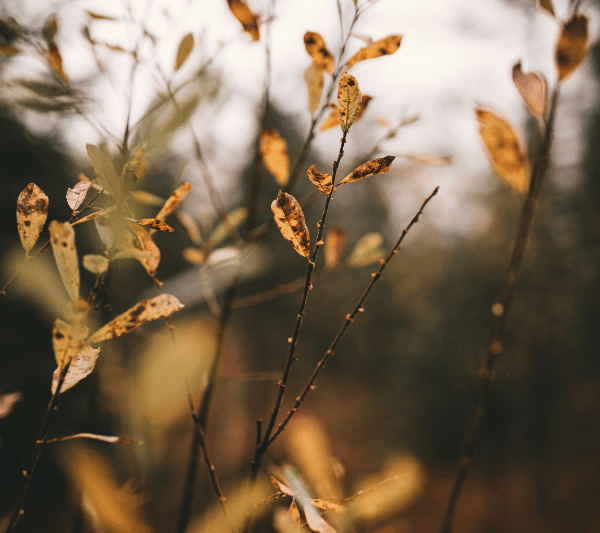
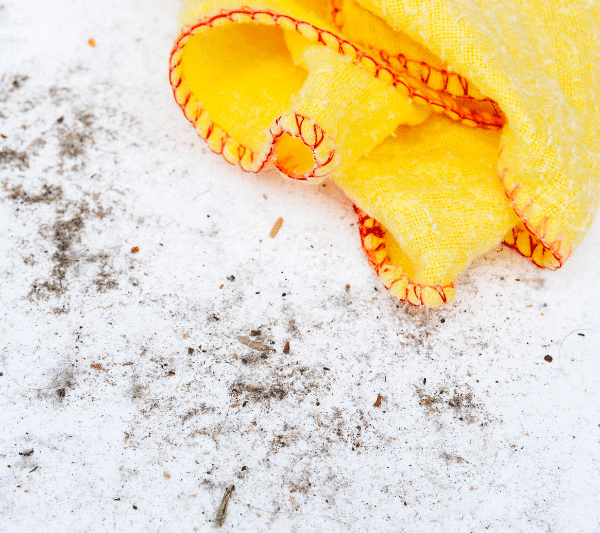
That’s right – you can compost dust from vacuuming or sweeping. No worries if there’s hair in the dust as well, it can be composted too (that applies to both human and pet hair).
If your vacuum cleaner has picked up any synthetic fibers as well, this won’t hurt the composting process – they just won’t decompose.
Cotton balls, cotton wool, cotton swabs… all of that can be composted. Do make sure to check the packaging first to see they are made from real cotton and that no synthetic fibers are added to it (this should be disclosed on the packaging).
Additionally, avoid adding any cotton wool or other cotton products that have come into contact with harsh chemicals – this could disrupt the composting process.
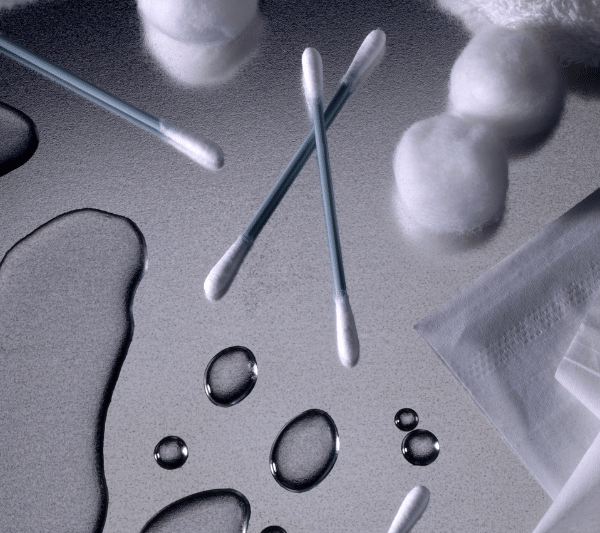
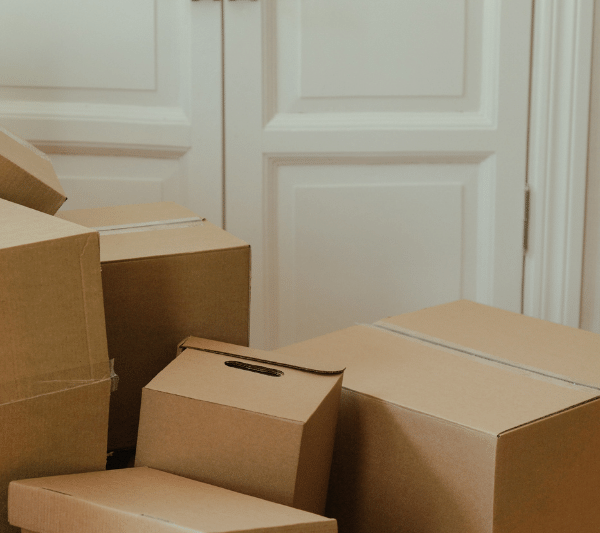
Most paper items can be added to your compost, which includes cardboard, kitchen towels, toilet paper, tissues, shredded documents or bills, and more. Just make sure to break them down into smaller pieces.
Watch out for coloured and glossy paper – it may contain heavy metals which make it non-compostable.
Dry pet food which may otherwise go to waste is an excellent addition to compost – one that may also help you effectively start your compost. This is an ideal solution for any stale pet food your furry friend won’t touch no matter what.
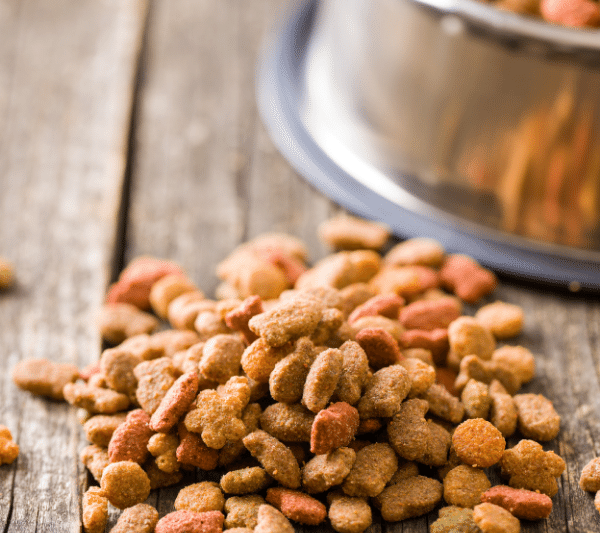
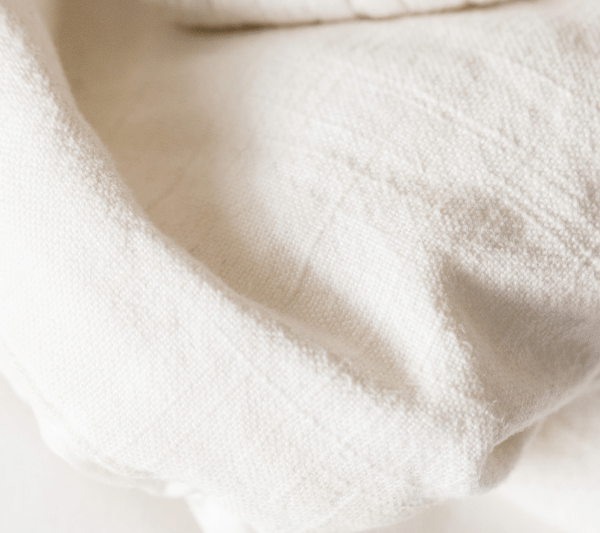
If you have any clothes that are destroyed to the point where they can’t even be used as rags, you can add them to the compost if they’re made from natural materials – just don’t add any synthetics to your compost.
The same rule applies here as with cotton wool – make sure that there aren’t any synthetic fibers added to the fabric before composting it.
Cork is a natural material from the cork tree – which makes it easily compostable. To help it decompose more quickly, just chop the cork up into smaller pieces before adding it to the compost bin.
However, you will need to make sure that your wine cork is really made from genuine cork before composting it, as synthetic alternatives are becoming more common.
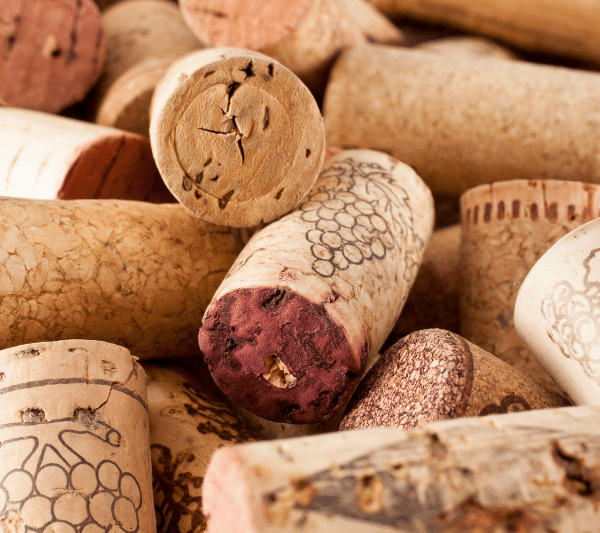
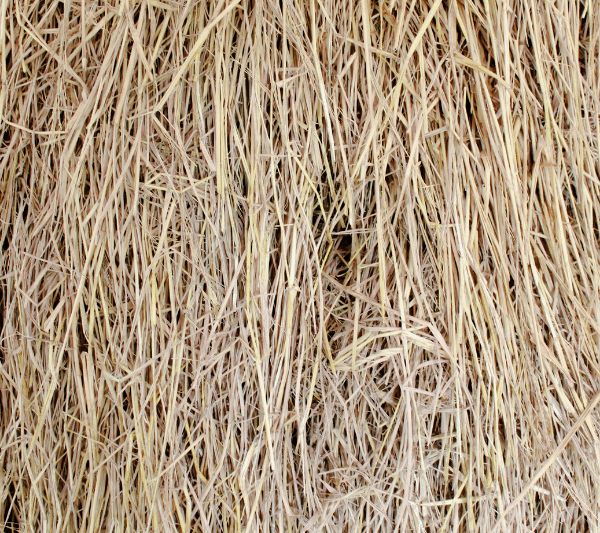
If you’ve got a hamster, guinea pig, or chinchilla in the house, you can compost the bedding from their cages along with manure. The same applies to manure from all other herbivores!
However, do keep in mind that to be good for your compost, the bedding must not contain any synthetic materials – and your pet also needs to be healthy.
Composting is a great thing to do for the environment, even when you don’t have a garden. Aside from to more obvious things you can compost at home, such as veggie scraps, organic waste or tea leaves, there are some truly surprising compostables, which will decompose just fine.
If you haven’t been putting things such as pet bedding, wine corks or dust on your compost so far, now would be a great time to get started. It will help reduce your carbon footprint, as well as the amount of solid waste leaving your home.
Like this post? Here are some others you might enjoy:
A Wasteful Wardrobe – How Is Fast Fashion Contributing To The World’s Plastic Pollution
The 5 R’s Of Zero Waste And How They Can Help You Build A More Sustainable Lifestyle
The Devastating Environmental Impact Of Food Waste – And What You Can Do About It
A 30 second read delivered to your inbox
with tips for self care and sustainable living.
Start your day with something good.
In order to grow our small business, daably earns revenue in a few different ways. Our Site will occasionally contain (paid) links to, and quotation of, material from other sites. This is an arrangement between the retailer and daably, readers never pay more for products. We publish several sponsored posts each month, which are always labeled at the top. These are the ways we support daably and allow us to run the site and engage with this community we truly love. daably is not responsible for the content or the privacy practices of other sites and expressly disclaims any liability arising out of such content or practices. Under no circumstances does daably accept responsibility for, nor shall daably be liable for any damages or detriment arising out of content, practices, or other media of third party links.
© daably 2021